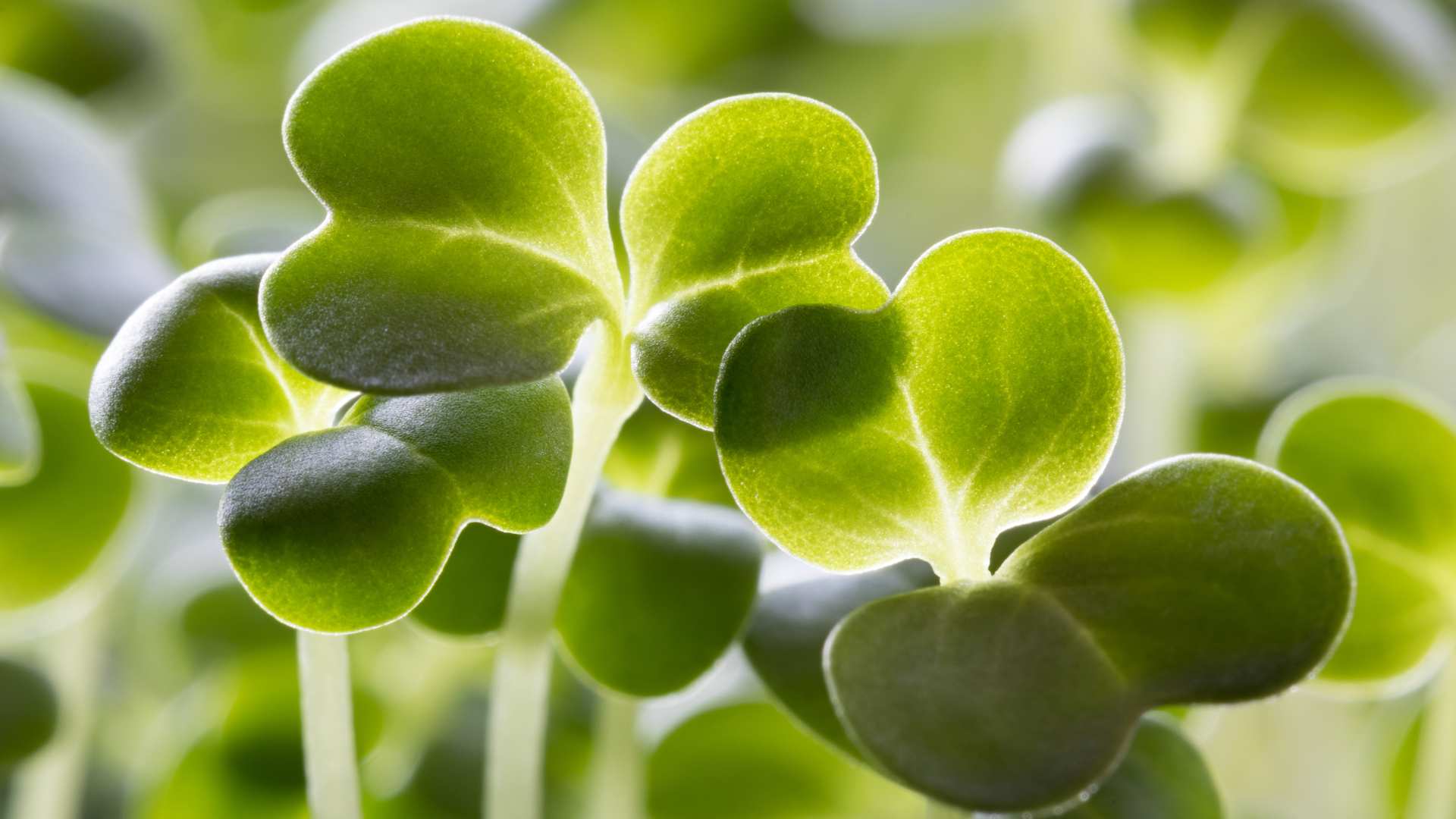
CAN COLLAGEN BE VEGAN?
Over the last decade, the plant-based lifestyle has grown in popularity among many health-conscious consumers. This trend has led to an increase in vegan and cruelty-free products that are now widely available on the market, including so-called ‘vegan’ collagen.
Collagen is the most abundant protein in the body; however, collagen production slows down as we age, and this decline begins in our 20s.
It is impossible for collagen to occur naturally in plants. Rather, what goes into vegan collagen can be made by using genetically modified yeast and bacteria in the laboratory to produce animal-free (vegan) collagen. Vegan collagen is normally a marketing term for plant-based ingredients which help your own collagen production, also known as 'collagen promoters'. Most collagen protein supplements are typically taken from the connective tissue, bones and cartilage of cows or sourced from fish. While using animal-derived supplements has strong research linking it to health and anti-ageing benefits, it is still ambiguous whether vegan collagen supplements can provide the same value.
*The articles Which Collagen Type Should You Take and Bovine Collagen Peptides for Joints Health will explain the overall health benefits of hydrolysed collagen in further detail.

WHAT IS VEGAN COLLAGEN?
Scientists have made vegan collagen by using genetically modified yeast and bacteria P. pastoris. However, they are still not very common on the market. Most so-called 'vegan' collagen supplements are simply 'collagen promoters' and contain various vitamins (including vitamin C), minerals, and amino acids that may help boost collagen production.
For example, studies have shown that vitamin C increases collagen synthesis and protects against photo-ageing, photocarcinogenesis (caused by sun exposure), and ultra-violet-induced immunosuppression [1].

WHAT ARE THE HEALTH BENEFITS OF VEGAN COLLAGEN?
Vegan collagen promoters claim to do just that, boost collagen production. And with the addition of vitamins and minerals, these supplements may also help promote healthy hair, skin, and nails. Because most of the vegan collagen supplements available on the market today contain amino acids, Vitamin C, Zinc, and Copper. This combination may help improve your skin's elasticity, wrinkle depth, and hydration [4][5].

HOW BIOAVAILABLE IS VEGAN COLLAGEN?
Bioavailability will vary from person to person as there are various factors to consider, such as genetics, gastrointestinal tract health, age, overall health status, food source, and even food combinations [6]. There have been some claims made by vegan collagen companies that advertise their products as being more bioavailable because their collagen undergoes less processing, therefore, preserving more nutrients.
The current research doesn't wholly support these claims. For example, a study published in Nutrients found that most animal studies did show differences in the comparative bioavailability of synthetic and non-synthetic vitamin C or in addition to isolated bioflavonoids but even then, the results varied. And the opposite results were found in studies conducted on humans, as the comparative bioavailability had shown no differences between synthetic and non-synthetic Vitamin C [7].
For further understanding of supplement bioavailability, read the article on The Importance of Bioavailability.
Currently, there aren't many scientific studies that can determine the bioavailability of genetically modified vegan collagen. However, many studies have confirmed that bovine collagen being very close to human collagen molecules—when correctly hydrolysed—is highly effective and bioavailable.

HYDROLYSED BOVINE COLLAGEN VS VEGAN COLLAGEN?
Hydrolysed collagen is also referred to as collagen hydrolysate and is made through hydrolysis, which involves water breaking down the chemical bonds. Collagen is made of three chains of amino acids in contrast to hydrolysed collagen, which is broken down into small protein chains known as collagen peptides [8]. FLEXIBLE is a collagen-based supplement designed to improve tissue elasticity by supporting joint health and reducing inflammation, thanks to its complementary premium ingredients. Created by LEMAlab™, FLEXIBLE contains hydrolysed bovine collagen peptides readily absorbed by the body. It is cruelty-free and has a no-waste policy to avoid unnecessarily wasting animal products—human meat consumption excludes part where the collagen is sourced for the supplement market. The concentration of 19 amino acids and bioactive peptides enhances its efficacy.
*Read Unscrambling Collagen Supplements to find out more about the benefits of hydrolysed bovine collagen.
Vegan 'collagen boosters' can be naturally included in your diet if that is your preference, as they are essentially multivitamins and minerals that may help promote collagen production.

CONCLUSION
Experts' opinions are divided, but they tend to favour animal collagen over vegan collagen promoters claiming that collagen supplement needs to be animal-based, protected from the action of the stomach and independently clinically proven.
The market is saturated with supplements, and we will always advocate for high-quality ingredients to our audience and verify any claims that companies make. The vegan lifestyle is growing rapidly and so is the variety of supplements and food items. We will follow-up closely on how research evolves on the vegan collagen ground. In the meantime, ensure that you invest your money into products that will benefit you and not corporations.
Have a FLEXIBLE day and a pain-free life!


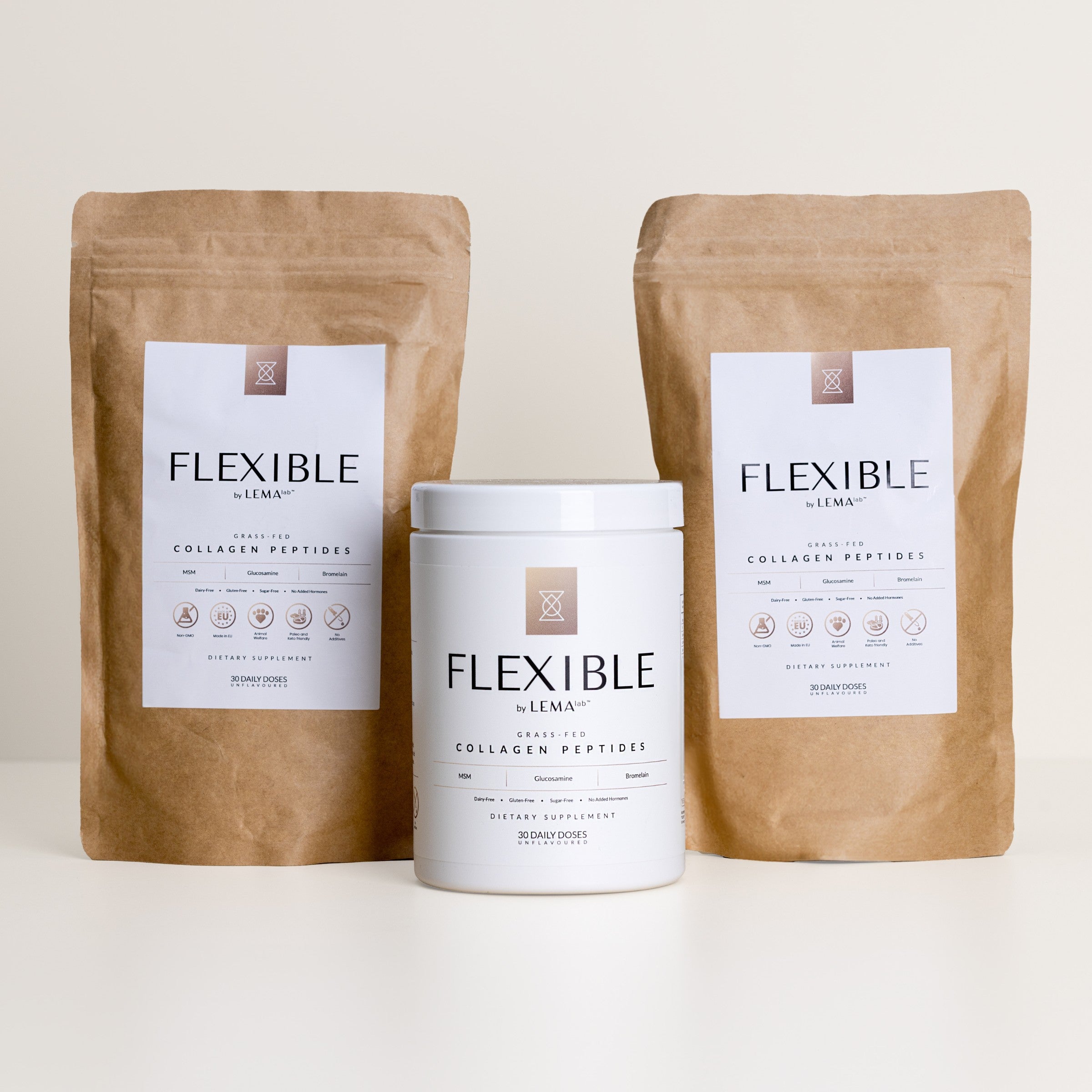
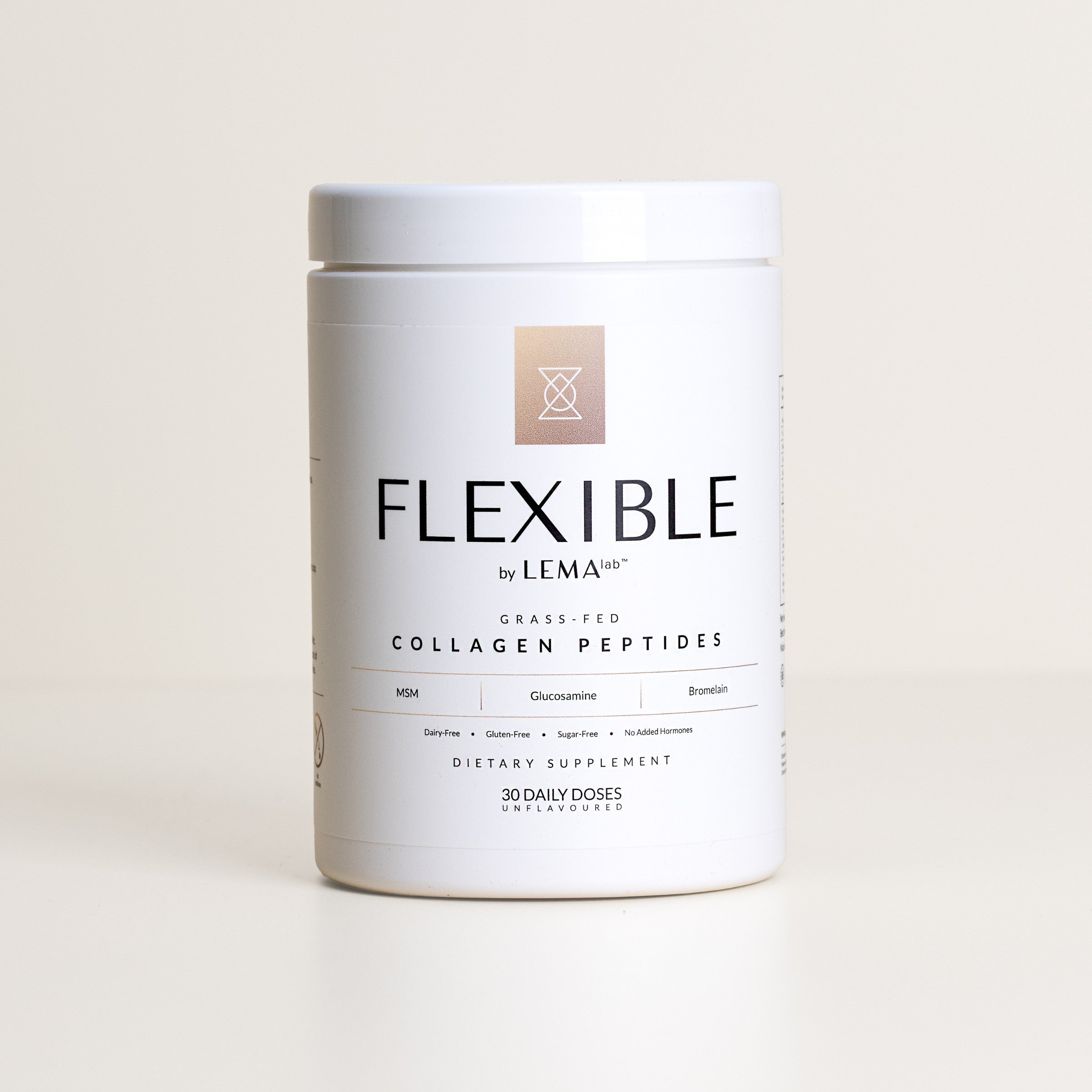
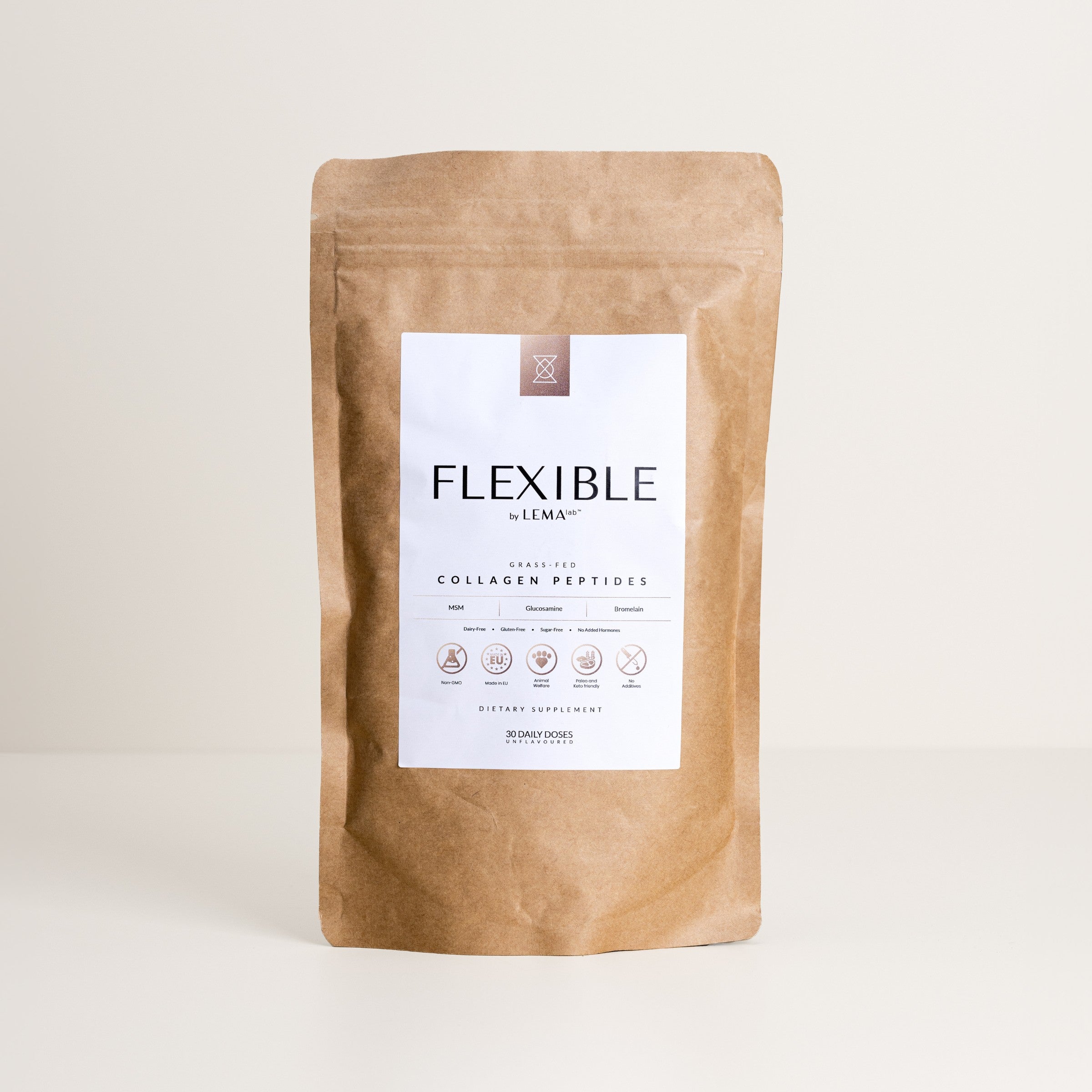
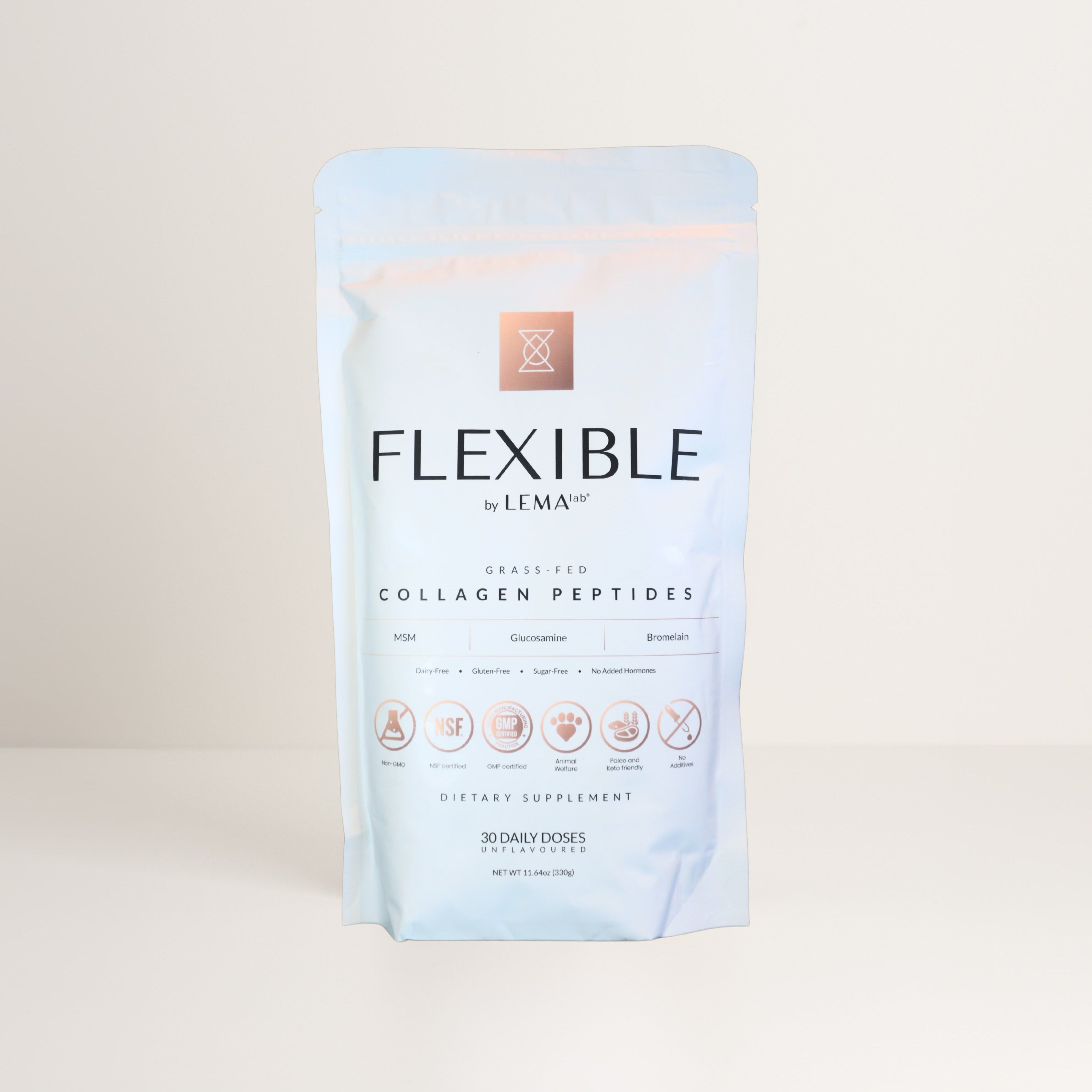
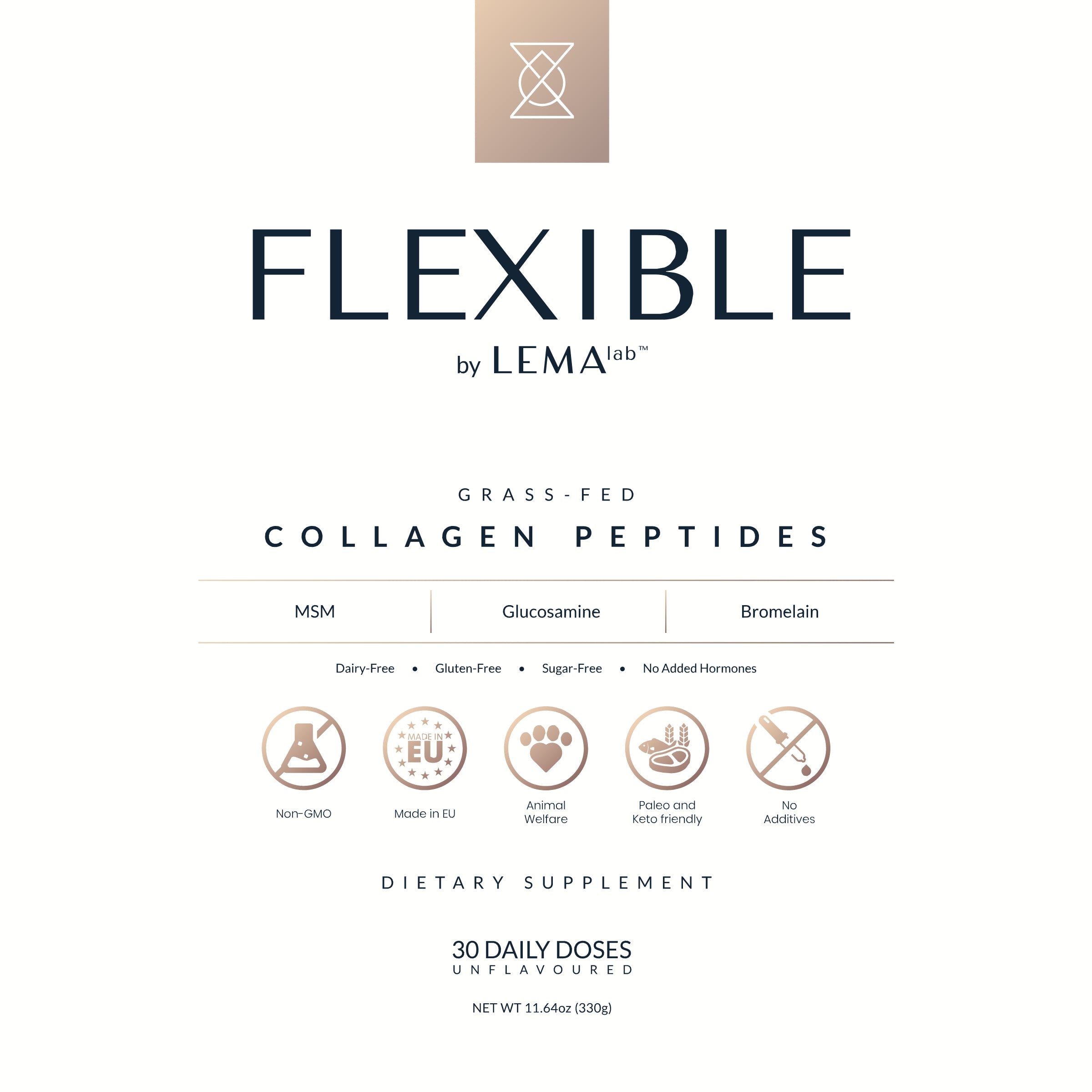
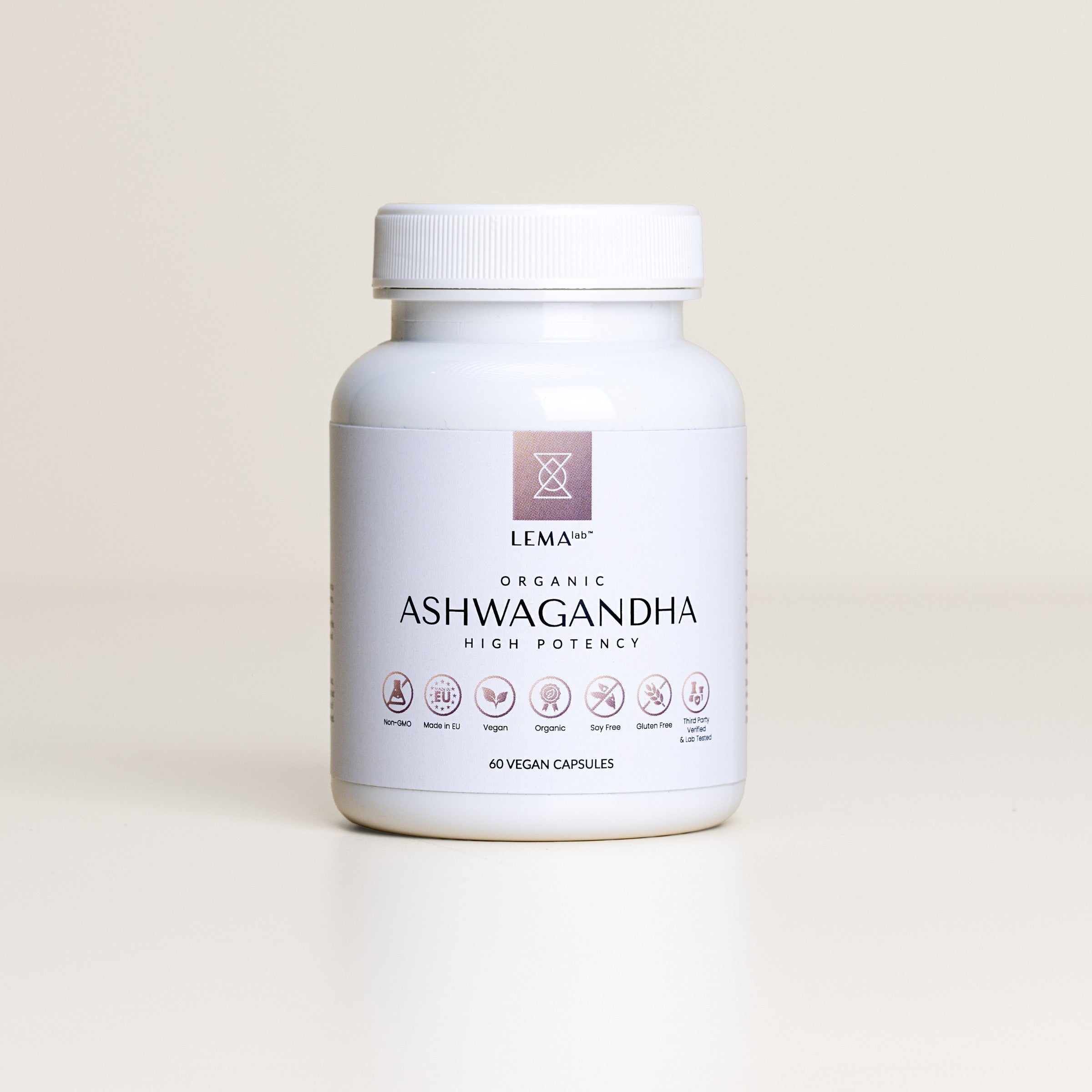
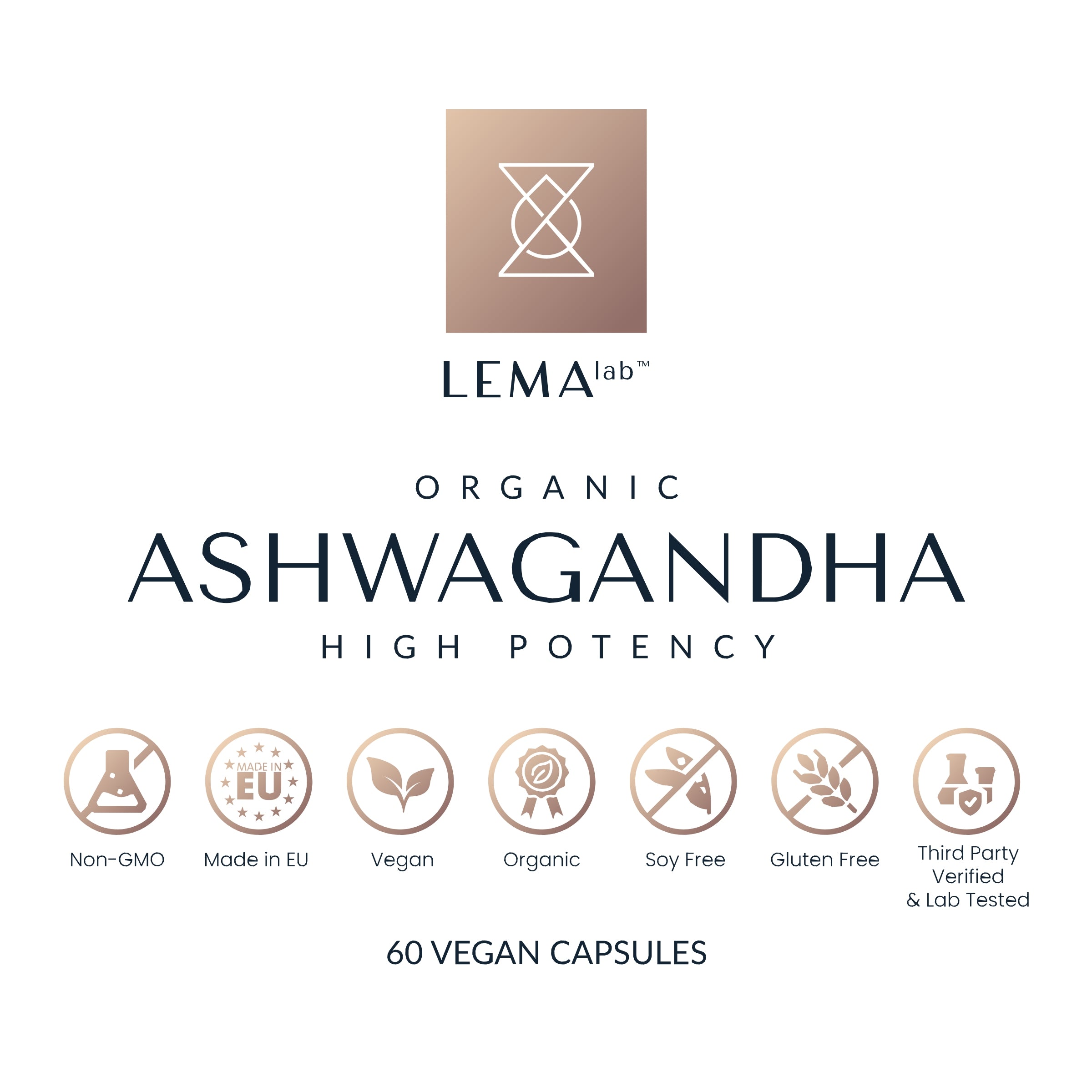
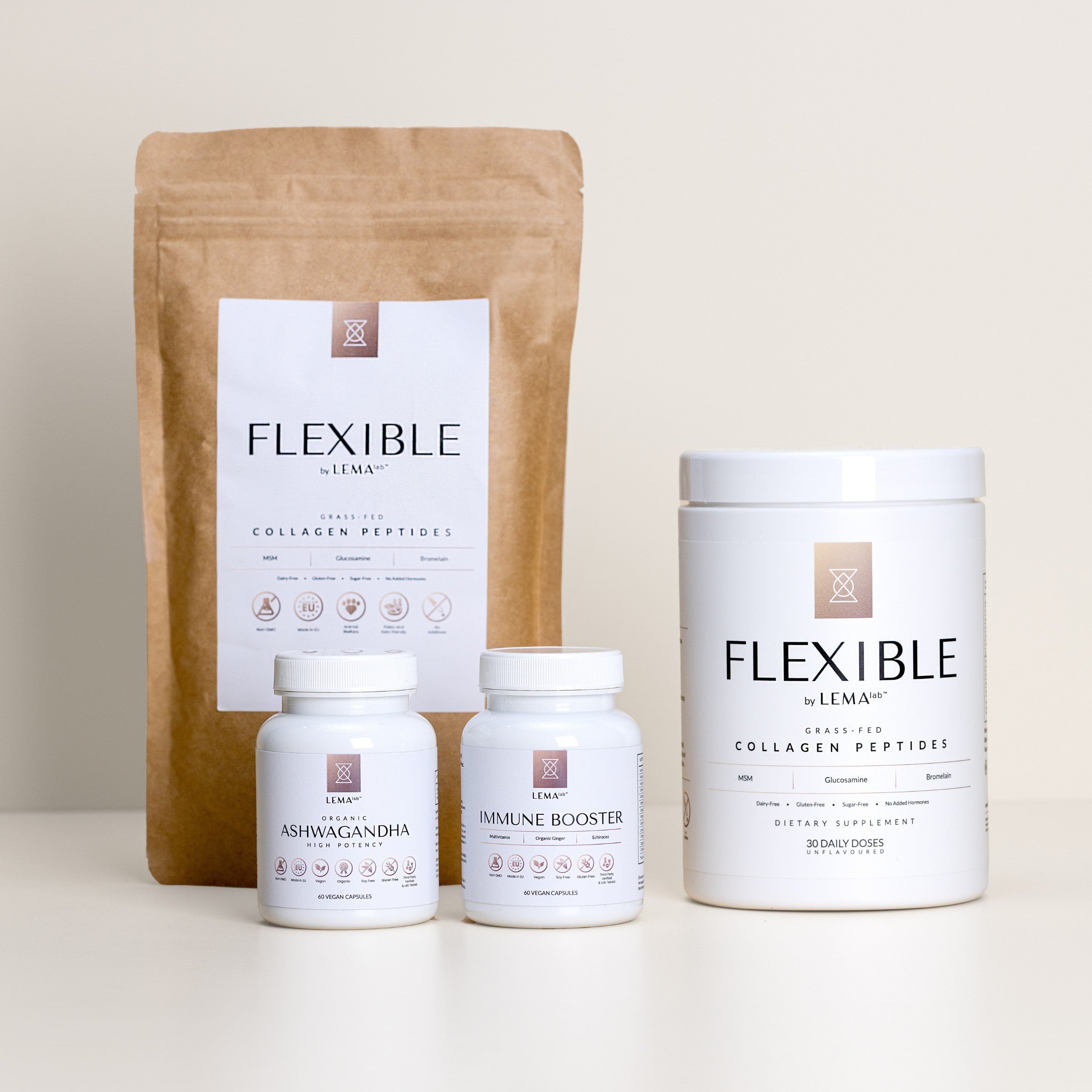

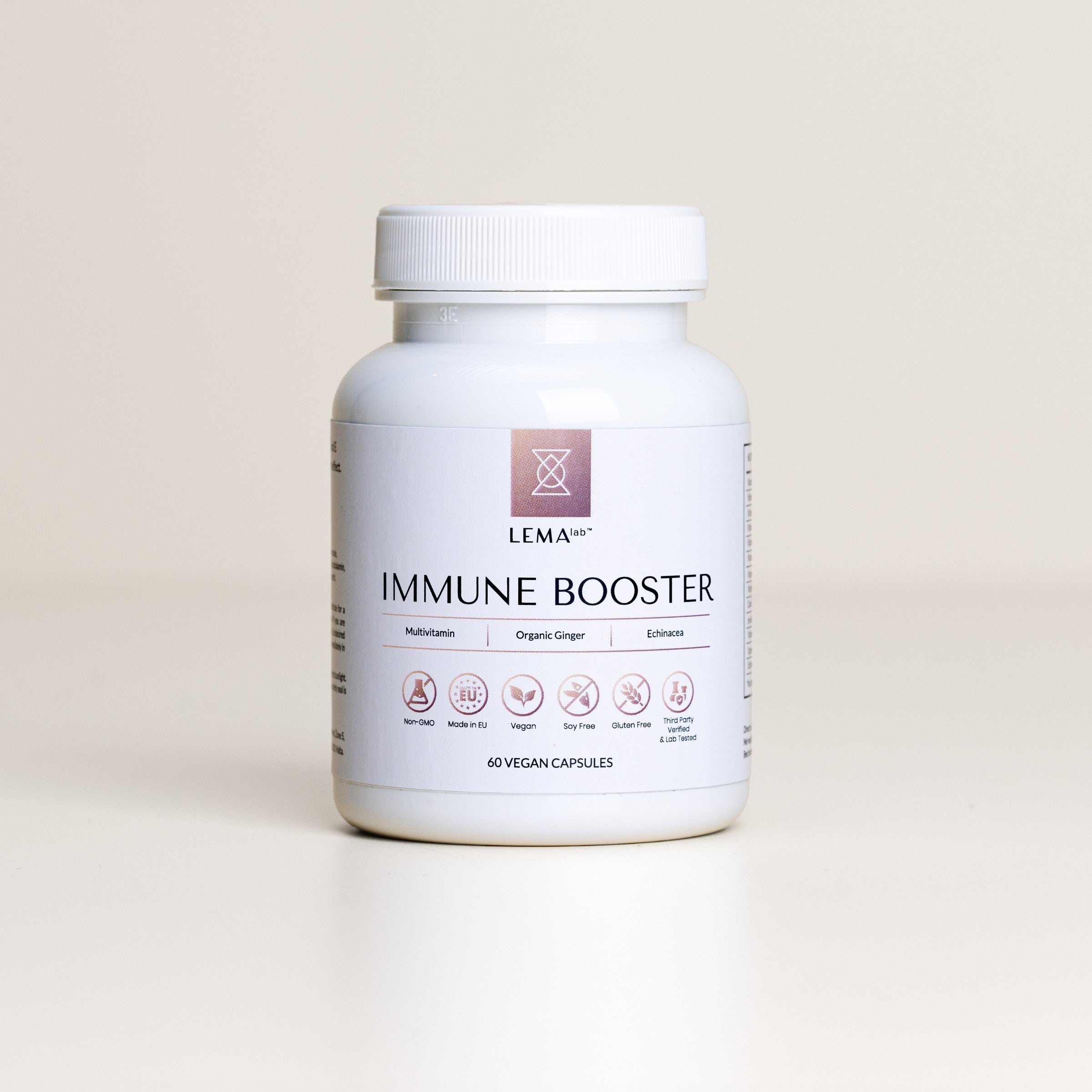
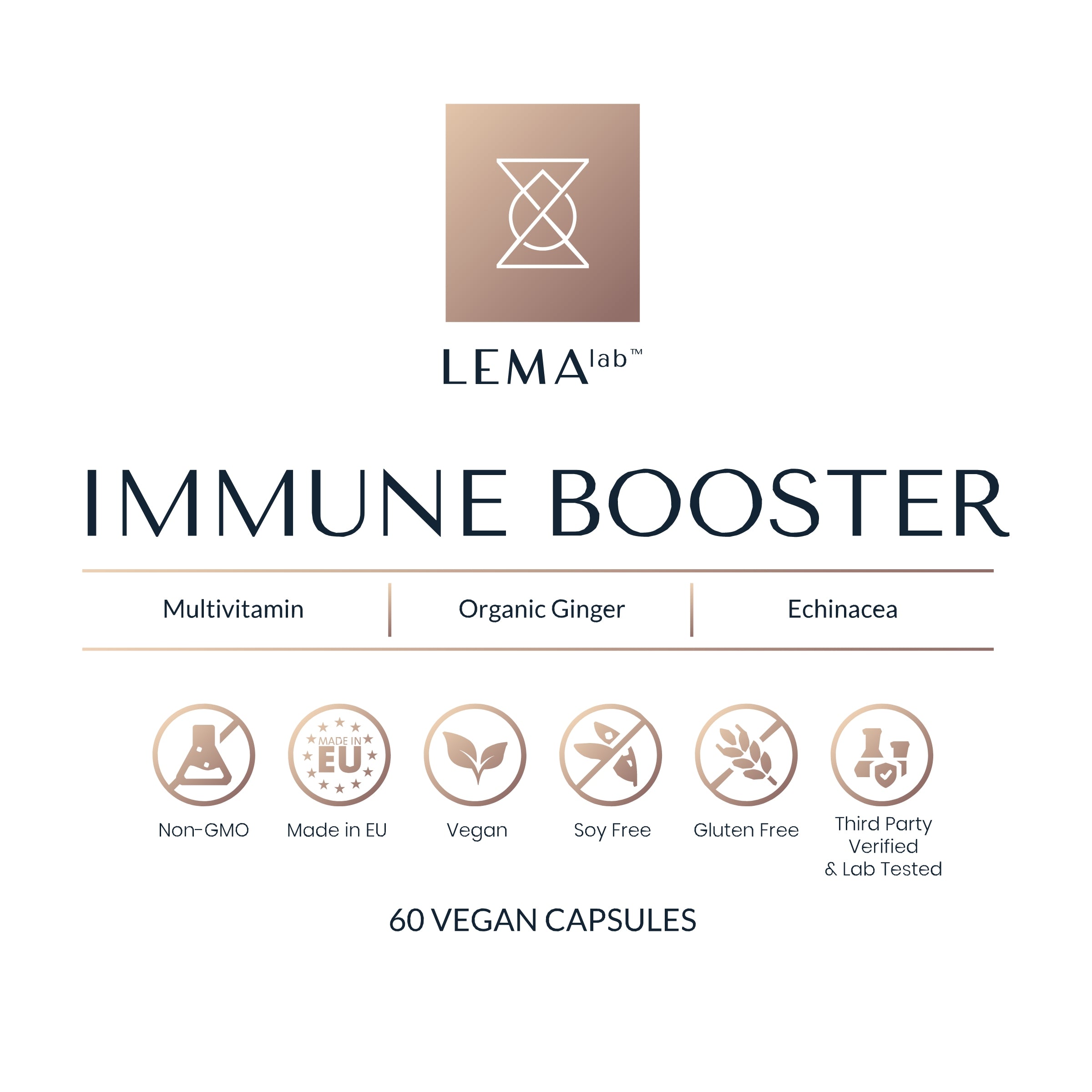
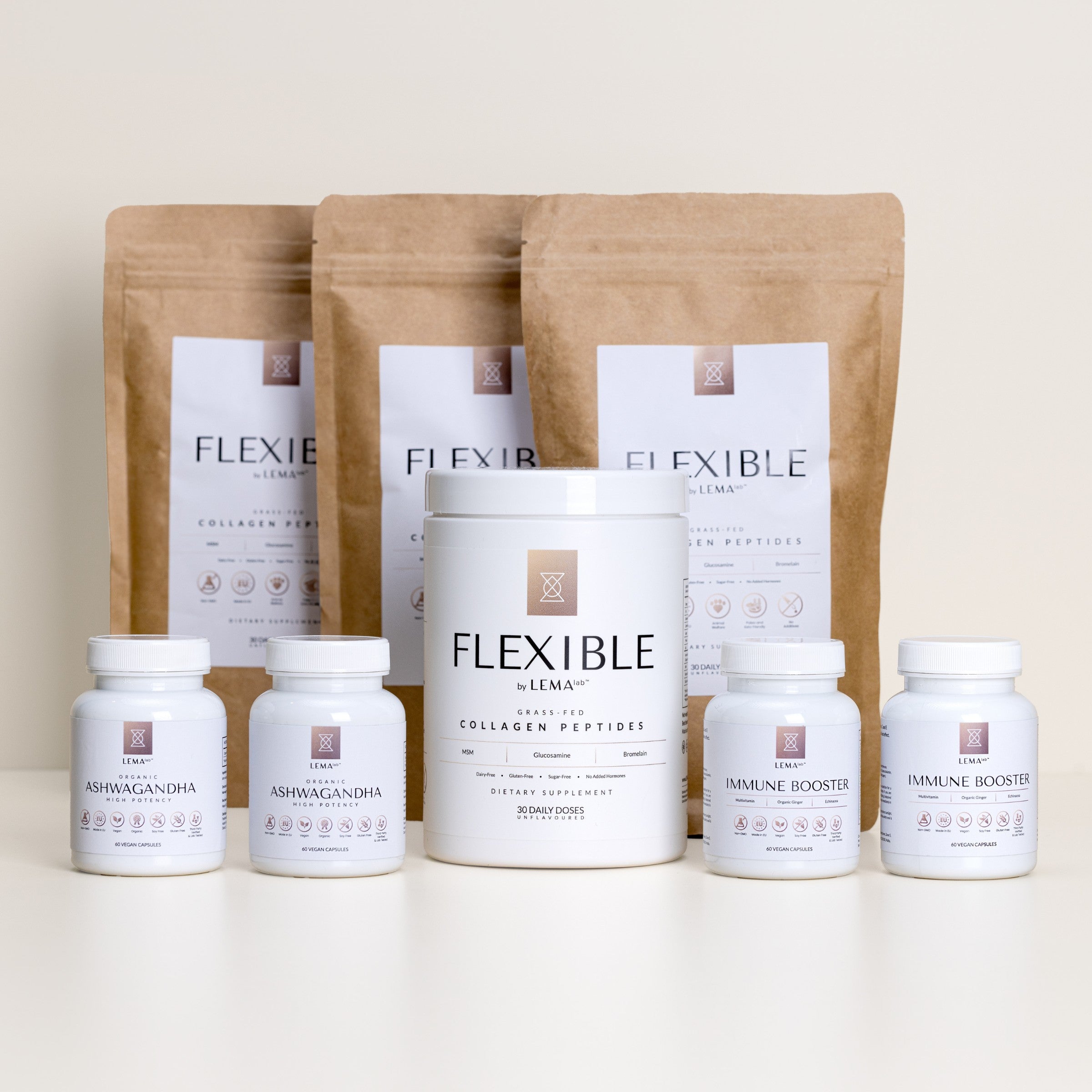
Leave a comment
This site is protected by hCaptcha and the hCaptcha Privacy Policy and Terms of Service apply.